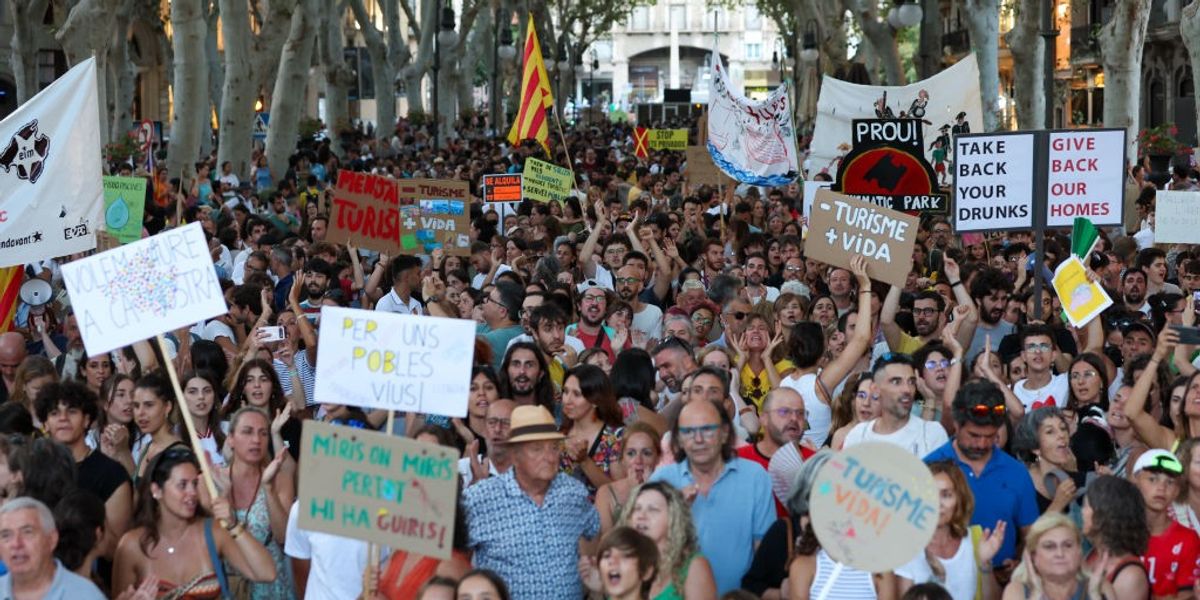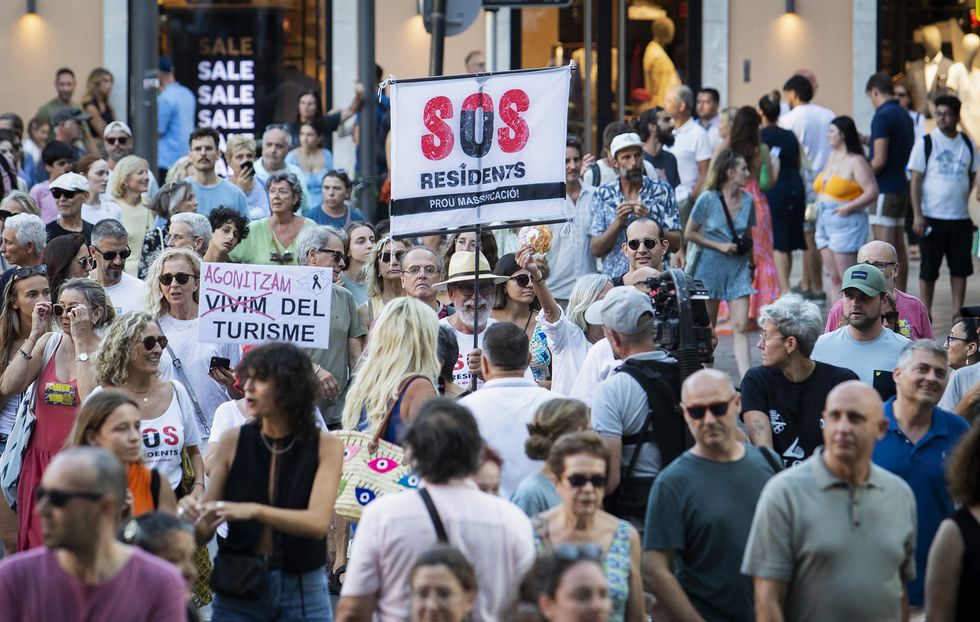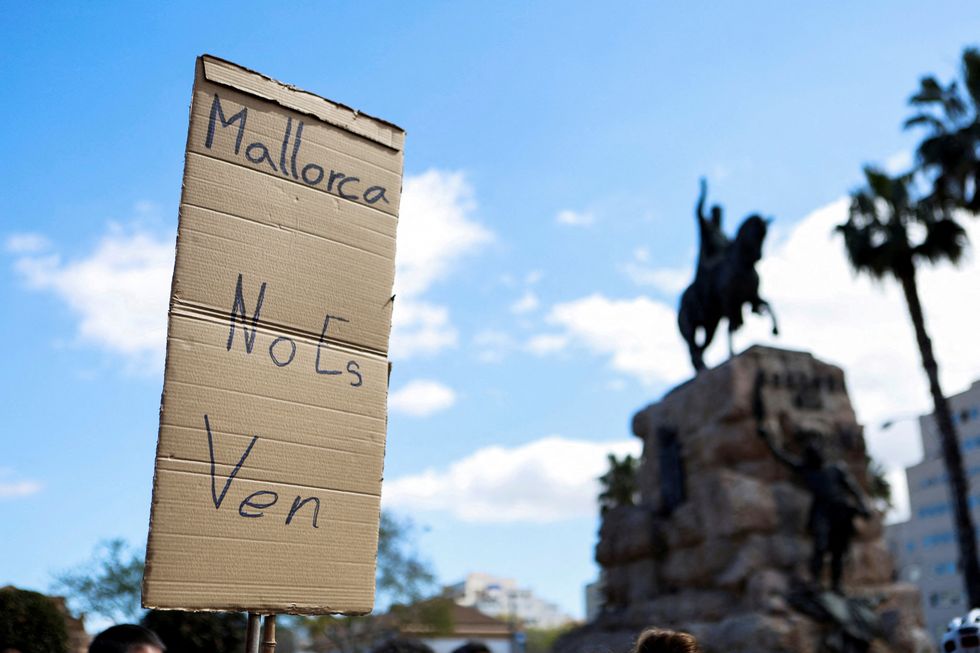



Majorca's businesses hope September will "save the season" after holidaymakers shunned the island amid anti-tourist protests.
The Spanish island's hospitality industry faces catastrophic financial losses as sustained anti-tourism demonstrations frighten away British holidaymakers, pushing their economy towards potential collapse.
Restaurants and bars have endured a disastrous summer season, with business owners reporting dramatic revenue declines since May.
CAEB, the principal employers' organisation for the Balearic Islands, expressed hopes that September might salvage what remains of the tourist season after months of underperformance and "save the season".
Anti-tourist protests, which first emerged in 2023, have escalated throughout 2024 and this summer too.
Industry representatives now plead for tourists to return, warning that the island's economic stability hangs in the balance as visitor numbers plummet and businesses struggle to survive.
Beach establishments, parasol rental firms and water sports companies experienced approximately 20 per cent fewer customers in July compared to the previous year's figures.
The Association of Temporary Services Concessions and Operations in the Maritime-Terrestrial Public Domain of Mallorca (Adopuma) revealed that hostile anti-tourism campaigns have driven the island's economy dangerously close to breakdown.
 Majorca has seen a large slump in tourism numbers this summer after the anti-tourism protests which spread throughout Spain earlier this year | GETTY
Majorca has seen a large slump in tourism numbers this summer after the anti-tourism protests which spread throughout Spain earlier this year | GETTY
Onofre Fornes, who leads Adopuma, attributed the downturn to what he called "irresponsible negative messages against tourism".
The association's data shows restaurants struggling to meet targets, beach bar income hitting record lows, and accommodation occupancy rates plummeting even during August's traditionally busy period.
Spanish authorities have acknowledged that relentless anti-tourism campaigners are "scaring away visitors", with the hospitality sector bearing the brunt of the economic damage.
British holidaymakers have become the primary casualties of the anti-tourism movement, with many choosing to avoid the island entirely after witnessing disturbing protest tactics.
Demonstrators have employed increasingly hostile methods, including spraying unsuspecting visitors with water pistols in Barcelona and displaying "tourists go home" messages across local businesses.
The campaign reached alarming heights when protesters blocked hotel entrances and confronted diners at restaurants.

British holidaymakers have become the primary casualties of the anti-tourism movement
| GETTYIn one particularly shocking incident in Palma, a British tourist found himself surrounded by angry demonstrators shouting "go home and go to hell".
The situation escalated further when an activist brandished an axe at a restaurant in an apparent attempt to intimidate tourists, prompting police intervention.
These violent confrontations have fundamentally altered perceptions of the Balearic Islands as a welcoming destination.
Adopuma has issued urgent appeals for governmental action to address the economic crisis by implementing price controls, managing extreme anti-tourism sentiment and maintaining affordability on the island.
The organisation stressed the need for swift intervention to prevent further deterioration of the tourism sector.
Miguel Pérez-Marsá, who heads the nightlife association, told Majorca Daily Bulletin: "The tourists we're interested in are being driven away; they don't feel welcome and are going to other destinations."

'Majorca is not for sale,' reads a protest banner in Plaza Espana
| ReutersManuel Pozueco, who manages British bar Linekers, explained: "Under the recent laws, we can't do happy hours or give away free shots.
"We can't do any drink deals, as they see it as promoting excessive alcohol consumption, and of course, this turns away traditional customers like the Britons."
Business owners fear that without European visitors "spending the same", establishments may be forced to close permanently.
Lesley Johnson, a 66-year-old Leicester native who has called the island home for over three decades, described the dramatic transformation of formerly bustling tourist areas.
She said: "This area used to have a lot of British bars and pubs, and they would hold quiz leagues and dance leagues.
"Back then, if you went along this street at 7pm at night, you couldn't walk up, it would be full of tourists, but now it's completely dead."
